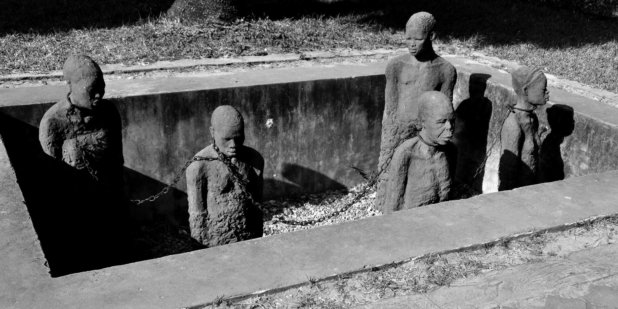- About
- Topics
- Story
- In-Depth
- Picks
- Opinion
- News
- Donate
- Signup for our newsletterOur Editors' Best Picks.Send
Read, Debate: Engage.
Lost in the daily bustle of the sprawling metropolis, Karachi, thousands of Sheedis of African descent live a secluded life in Pakistan marred by systematic discrimination.
‘From the jungles of Africa came two dancers hahaha’, mocked one evidently educated urban spectator after watching the traditional ‘Lewa Dance’ performance by two Sheedis at a recreational facility.
Looking down upon the dark-skinned Sheedis with curly hair has sadly been normalised in Pakistani society where fairness of skin still serves as token of superiority. Mocking and stereotyped racial discrimination directed at them can even come from some of the presumably sensible religious and political leaders, as well as from public figures with no feeling of shame, Zia Rehman, a Karachi-based writer and researcher told the FairPlanet.
“Name-calling, bullying besides the subconscious prejudice directed at the Sheedi community children in schools, markets and other public places have only gotten worse with time as the community remains on the margins of society”, he added.
Relying on daily hard-labour for living, the Sheedis still remain outcast in Pakistan after dwelling along the Arabian Ocean’s costs for centuries. Many are forced to live in the ghetto towns in the south of the city, where drugs and arms business are rampant, and opportunities for their economic, social and political growth are literally shackled. This has locked the community in chains of poverty and illiteracy resulting in shaming and profiling as ignorant savages.
Some 150,000 Sheedis live in the southern parts of Pakistan. In Karachi, most of them live in the slum locality of Lyari, where gang warfare over drugs and arms are rampant.
Known for their outgoing community, the Sheedi community have produced some of the exceptional athletes, only at regional levels.
Yaqoob Qambrani, President of the Pakistan Sheedi Ittehad, believed many the doors of success are shut on them because they face discrimination at various levels, including schools and workplaces.
“We are battling hard to establish our true identity”
Yaqoob Qambrani
It is believed that even before the first slave ships started supplying labour to the cotton plantations of the American south, Africans were being sold as slave-soldiers in this part of the world. In her studies, Amy Catlin of the University of California has suggested that the Sheedis are descendants of African slaves, sailors and servants, and merchants who remained in India after arriving through the sea trade with East Africa and the Gulf in the 12th century or before, and lasted until the late 19th century.
Though, some Sheedis acknowledge it, others, include Qambrani dispute this claim, and argue that the Sheedis are descendants of the Arabs.
In Qambrani’s views, the deep-rooted culture of blaming and shaming ‘black-face’ in Pakistan has held them in chains of associated stereotypes where the Sheedis are portrayed as ‘the evils, thieves and unwanted’. “For instance, when anyone from our community boards a public transport bus, everyone else tries to keep distance. We are not blind to watch how others look and treat us”, he said.
Researcher Zia Rehman mentioned that like many other minority groups, the Sheedis are in a dire state in Pakistan because nothing serious has been done on state-level to ensure their smooth integration and acceptance in society.
The community leader said there was huge outcry when the first Sheedi community member was nominated for the regional assembly as a lawmaker. “People would say “should we now refer to a Sheedi to resolve our problems”, this exposes racial discrimination.
In Pakistan, the sufi saint Pir Mangho is regarded by many as the patron saint of the Sheedis, and the annual Pir Mangho Urs festival, marking his death anniversary, is the key event in the Sheedi community's cultural calendar, features songs and dance clearly derived from Africa.
“After years of ban on this festival over security concerns, we have been allowed by the security forces to hold it this year, and we would mark the festival with full zeal”, Qambrani told FairPlanet along with a generous invitation to attend the festival.
